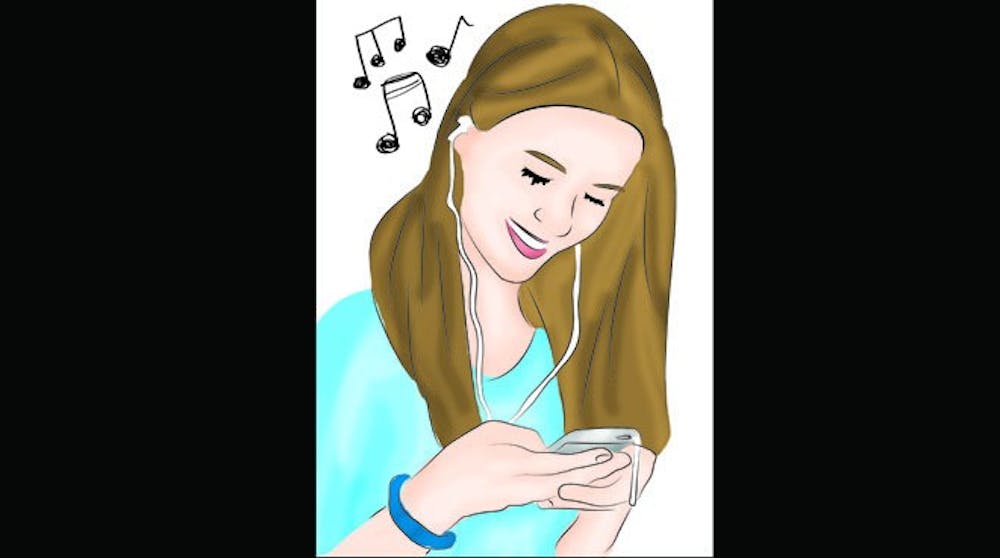I don't function well without my iPod. I live parts of my days by playlists - alternative while I walk, symphonic while I write, trippy while I space out and rap while I run. Music affects my emotions to make me mellow, perky or adrenaline-rushed, and listening is a habit I hate to do without.
But it's not just me. Music is everywhere. It streams out of car windows, dorm windows and mouths of passersby who are jolly and singing to themselves.
It takes to the air at restaurants while I pick up my drink, the grocery store while I struggle through the self-checkout and elevators during that 20-second lift. It's inescapable and it's glorious.
Now, companies like Qtrax, which provides applications for free and legal downloads, are trying to make music available to everyone everywhere and at every time of every day.
The company strives to establish a positive alternative to illegal applications that are guilty of pirating music, according to a New York Times article. The company also requires that users download the Qtrax software player and corresponding advertisements at no cost from the website before the free music can start streaming. The songs can then be played in places with no Internet connectivity.
The Times quoted one entrepreneur affiliated with Qtrax, Allan Klepfisz, who said, "What we're doing is, without question, overly ambitious." But he only referred to the company's goal of channeling revenue exclusively through advertisements.
What is more overly ambitious is the attempt to fit a free downloading program into the economics of the art world. Included in the article was the statistic that about 95 percent of the music that was downloaded in 2010 was done so illegally, threatening the incomes of artists, writers and producers.
Even if Qtrax has indeed signed licensing agreements with producers -- Klepfisz said Sony, EMI and Universal were on board with the program but only through short-term pacts. And even if the pacts do protect the revenue rights of artists and others in the music industry, are they still receiving the money they should technically be earning?
It seems an overwhelming number of people would take a personally beneficial economic route and stream tracks for free instead of purchasing them via CDs or iTunes.
By taking advantage of applications like this one, are we not taking advantage of our artists? My academic adviser once said that aspiring poets should be willing to purchase the works of other poets. And eventually the act would come full circle and the aspirer would be hoping for other poets to purchase his or her own poetic works.
This is the way art sustains itself. So how can music, and the greater art world, continue to be if we become unwilling to pay the full price, or any price at all?
Enjoy what you're reading?
Signup for our newsletter
Support independent student media
You can make a tax-deductible donation by clicking the button below, which takes you to our secure PayPal account. The page is set up to receive contributions in whatever amount you designate. We look forward to using the money we raise to further our mission of providing honest and accurate information to students, faculty, staff, alumni and others in the general public.
Donate Now



